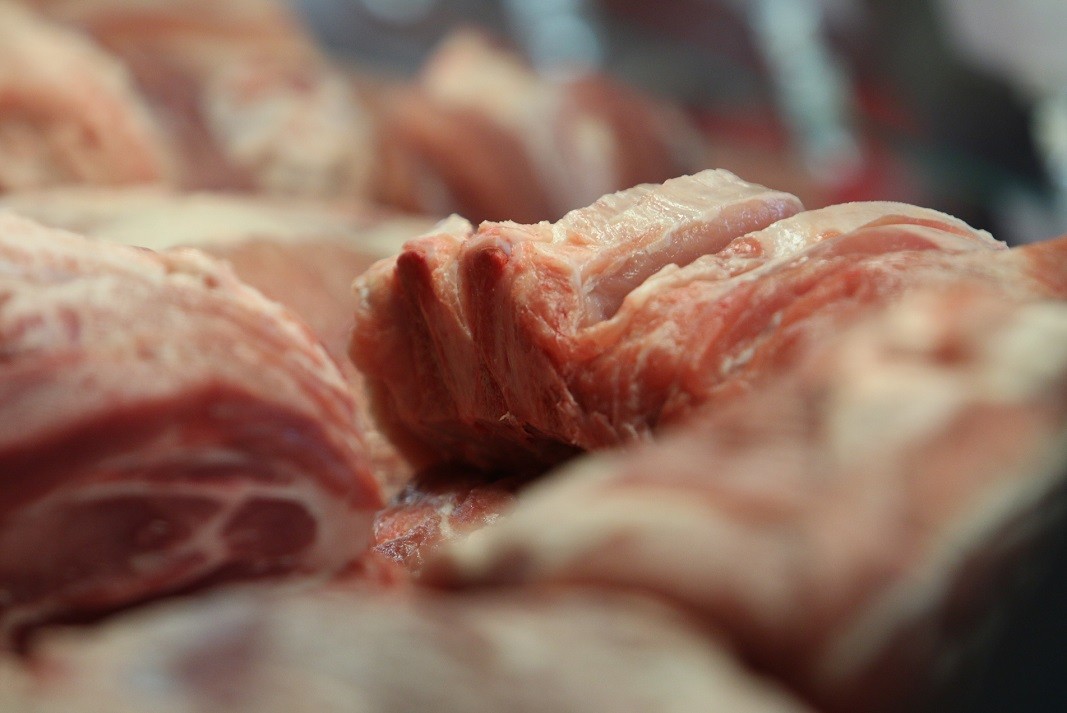Almost all meat products sold on Bulgaria’s market are imported from other European countries. Bulgaria imports pork mainly from Germany and Denmark, which are Europe’s largest pork producers. Big quantities of pork are also imported from Spain, Belgium and the Netherlands. This is so, because meat consumption in Bulgaria exceeds domestic production. In 2020, Bulgaria produced a total of 20,316 tons of red meat, or 15.4% less as compared to the previous year, data of this country’s Ministry of Agriculture, Food and Forestry indicate. Production of pork meat decreased by 40.2% and accounts for 9.9% of the meat produced in Bulgarian farms.
According to farmers, pig farming in Bulgaria collapsed after the mass culling caused by the African Swine Fever. In addition, farmers are facing other impediments such as high electricity bills, expensive grain and forage, which form more than 70% of the price of pork in Bulgaria. “The price of grain has gone up, because of the grain shortage. The Bulgarian market is flooded by imported pork from the EU. As a result, the price of pork dwindled significantly and domestic producers are suffering substantial losses”, pig farmer Vihren Dimitrov from Ruse district said for the BNR.

Why, however, end consumers cannot feel the price decrease?
“Prices of domestic and imported pork are different, but when the product goes through wholesale dealers and resellers, the price difference is not that obvious anymore”, Vihren Dimitrov explained and added:
“Wholesale dealers can buy live pigs for EUR 1 per kilogram and pork carcass for EUR 1.80- EUR 1.85. Thus, we are suffering losses from every single kilogram of meat and we cannot rely on any protection mechanism. My colleagues are closing farms or reducing the number of their animals significantly. We can help ourselves if we start selling our meat directly to the end consumers.”
In an address to the National Association of Municipalities and the mayors of small towns and villages, Vihren Dimitrov called on the municipalities to inform their residents that Bulgaria’s pig farmers are able to deliver Bulgarian pork meat to every Bulgarian town and village at competitive prices.
“We can deliver pork meat to the villages, as many village residents are unable to go to the nearby town and buy expensive pork. On one hand, the selling price covers our costs. On the other hand, we are not suffering losses”, explains Vihren Dimitrov.
Pig producers are adamant that their initiative does not contradict the veterinary regulations.
Some mayors reject the idea saying they are not a meat shop. Others, however, gladly embrace the idea. On the other hand, pig producers are hoping to preserve their farms.
“Domestic pig producers manage to provide only 20% to 30% of the pork meat sold in Bulgaria. No one is protesting when cargo vehicles loaded with imported pork from Germany or Spain supply meat to the large food retailers. When the coronavirus pandemic broke out, the idea to give priority to local production remained a wishful thinking only. Profits get into the pockets of foreign traders and the local producers go bankrupt. What would happen if Bulgaria is left without domestic produce?” Vihren Dimitrov asked.
Compiled by: Darina Grigorova (interview by Veselina Milanova, BNR-Horizont)
English version: Kostadin Atanasov
Photos: library, BGNES , EPA/BGNESOn October 31, 2024, 10 business leaders in Bulgaria founded the first Bulgarian-Czech Chamber of Commerce in the country. At the Embassy of the Czech Republic in Sofia, in the presence of Martin Dvořák, Minister of European Affairs of the Czech..
In the space of 15 years, from 2005 until 2020, 75% of the farms in the country have disappeared – from 500,000 in 2005 down to 132,000 in 2020, said Prof. Dr. Bozhidar Ivanov, Director of the Institute of Agrarian Economics at an international..
In October 2024, the total business climate indicator decreased by 5.6 percentage points compared to September, dropping from 22.5% to 16.9%. The index declined in all monitored sectors, the National Statistical Institute announced. In industry, the..
Butter and vegetable oil are the products that have increased in price the most over the year. The retail price of vegetable oil will range between 3..

+359 2 9336 661
